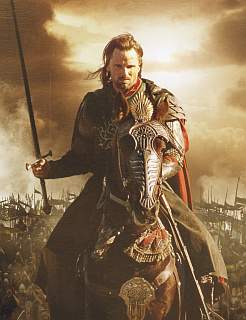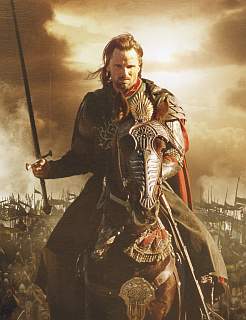 I had H1N1 a couple weeks ago, and it seemed to me the best thing to do while hacking up a lung was to read something escapist. You’re less likely to notice the sickness when you’re lost in another world.
I had H1N1 a couple weeks ago, and it seemed to me the best thing to do while hacking up a lung was to read something escapist. You’re less likely to notice the sickness when you’re lost in another world.
I’ve been trying to read a wide variety of contemporary novels to see what resonates with people. Honestly, I’m mystified at the bestselling novels because I find them exceptionally formulaic and not all that intriguing.
But what I find to be the most disheartening news comes from the A-list Christian authors of today. I can’t remember the last time I picked up a novel by a Christian author that I found worthwhile.
Now I have to qualify this comment by saying that the Christian book market is a woman’s market. One of the most damning statistics is that the vast majority of Christian men never pick up a book after they graduate from school—save for the Bible (and I can attest that a lot of them don’t pick up that book, either, if our rampant biblical ignorance is any indication). Christian women drive nearly all the sales of Christian books, including Christian fiction.
So there’s a lot of Christian chick lit out there. Newsflash: I don’t read novels that cater exclusively to women. Christian novels aimed at women could be Pulitzer Prize-worthy and I would not know it. (So if you’re an author of Christian novels that cater primarily to women, you can take what I’m saying with a grain of salt.)
I’m speaking of mainstream Christian fiction that appeals to both sexes or leans toward male readers.
Below are the top problems I continue to find in Christian fiction. Some of these problems are inherent to all fiction, while some are exclusively issues in Christian fiction.
1. Authors still struggling with the Gospel and what it means to be Christians who write novels
What makes a novel Christian? Increasingly, it’s hard to tell. It used to be that a novel would inevitably have a clear “THIS IS HOW TO BECOME A CHRISTIAN” chapter in it, usually depicting a character’s conversion. A few Christian authors still attempt to shoehorn such an obvious presentation into their books— and I have yet to read one of those that doesn’t feel forced. However, the trend in the most recent books has been away from proselytizing, possibly because it has felt forced and seems to bring a story to its knees—and not in a good way. What we see now are “Christian” books that contain the following:
- A Christian character or two (though the characters are almost always nominal or backslidden Christians beholden to some mistaken beliefs about Christianity)
- A story that contrasts “genuine” Christianity with some flaky, cartoonish, fundamentalist version
- A story that incorporates the symbolic elements of Christianity but stripped of their inherent meanings (such as depicting angelic beings who don’t match the Bible’s descriptions of angels)
- A pendulum swing away from goody-two-shoes heroes to ones that are almost ridiculously “overflawed”
- No real evidence of anything inherently Christian in the novel except that it was written by a Christian
While I don’t read as many hamhanded Gospel presentations as I once did, the trend seems to be moving toward attacking other Christians. I know that two books that I selected randomly to read during my flu both set up aberrant straw man Christians sects for pummeling. This is a wrongheaded trend, as it seems to muddy the waters. If that many bogus or flawed Christian sects exist, why consider Christianity at all?
2. Increasingly high suspension of disbelief
Many of the mysteries and thrillers in Christian novel circles call upon readers to invoke an almost inhuman ability to suspend disbelief. All fiction requires an author to stretch credulity, but what I’m reading in Christian novels today is simply over the top. One story I read asked the reader to believe that an entire town quickly and elaborately conspired to deceive one visitor. What made it worse was that the visitor could have easily been sent on her way with what she wanted, with no need for the massive ruse. The “sorry we all lied to you about everything, ma’am” ending should have been written as “the author apologizes for jerking your chain for no rational reason for the last 250 pages.” In short, for those novels that are clearly not in the fairy tale or magic realism categories, the villains are too much, the escapes too implausible, the mysteries too out there, the finales too good to be true, and on and on and on.
3. Mimicking the trends in secular writing and publishing
I’m seeing more A-list writers co-authoring books with newcomers. While this has been common in the secular publishing world, the Christian publishers are now joining in. I also believe it is clear that these are less full co-authoring efforts and more riding the coattails of the A-lister. Christian publishing already tarnished its reputation with the practice of uncredited ghostwriters writing the books of nationally known pastors and Christian celebrities. Let’s not make this worse by tacking on an A-list name to a book written almost entirely by an unknown.
Also, Christian fiction’s identity crisis continues unabated, as few authors have figured out how to create a genuinely Christian genre. Too many Christian authors still watch what sells in the secular world and ape the trends. This gives us little more than derivative, lower-quality, less creative works that do nothing to enhance the stature of Christian fiction. We need works that set the standards, not mimic them.
4. Pulp writing out of A-list authors
I keep hearing the names of the next set of “literary” authors that will save Christian fiction. Then I read their books and encounter the same bush league writing issues.
One issue that seems to dominate the Christian novels I’ve read lately is what I like to call “John Vowed Never to Return to His Hometown” Syndrome. Christian authors LOVE to employ this trick of constantly reminding readers chapter after chapter that the hero John vowed never to return to his hometown—when we all know that John’s inner struggle mandates returning to his hometown. All authors do this to some extent, but again, it seems to be hammered in Christian fiction.
I’m also bothered by the emphasis that plot takes over worldbuilding, as if Christian authors are racing to tell their stories, neglecting to employ all the standard storytelling devices that root readers in the novel. Character and setting descriptions and mood are often passed over, leading to a tenuous hold on readers. I know I put down more Christian novels than secular ones simply because the author hasn’t spent enough time drawing me into the world of the novel.
Christian novels also seem to have a higher likelihood that the author will spend a lot of time recapping events. Often, the protagonist’s inner dialog is constantly rehashing what happened in the previous chapters.
Boring! I read the previous chapters. I don’t want to read them again!
In the same way, Christian fiction suffers highly from a hero running an inner dialog that asks questions beneath the reader, as the reader clearly knows that the hero’s speculations are wrong. There’s a difference between keeping the reader and the hero in the dark and flat-out lying to readers with obviously bogus speculations. Good writers do the former not the latter.
Given some of these issues, it makes me wonder if the authors are just not that good or instead genuinely believe their readers can’t follow what they are writing. Then again, if readers can’t follow the writing, perhaps the author IS bad.
Lastly, I’m bothered by the excessive padding I read in novels. All modern novels suffer from this, but the Christian novels I’ve read of late are plagued by it. What makes this even more remarkable is that I’ve already noted that many Christian novels lack sufficient worldbuilding. If those elements are missing, what’s being padded?
Too many authors repeat elements of the story or revisit a pattern of character behavior with slight modifications. I read one novel by a Christian A-lister where the middle chapters consisted of the same two groups of people wandering around in the woods, going through the same motions, asking most of the same questions, ad infinitum. Tedious is the word that springs to mind.
And it’s tedious because there wasn’t enough story to make a full-sized book. Yet authors can’t get shorter books published because publishers blanch at the thought of printing something for adults less than 250 pages.
5. Unreliable reader reviews
It bothers me that readers rate so many books so highly on Amazon.com. Let’s be honest here: The average book is fair to good. That’s two to three stars. And while most books are overrated on Amazon, the reviews for books written by Christian authors are stellar to the point of being ridiculous. Either readers of Christian fiction are afraid to voice a genuine opinion for fear of hurting an author’s feelings or they simply can’t distinguish a great book from an average one. Either way, the result leads to unreliable reviews. This helps Christian fiction improve not one iota.
I have more opinions on this issue, but these five points highlight the major problems.
If you read (or even write) Christian fiction, I’d like to hear your comments!


 The annual Christian Booksellers Association convention (now with the utterly ghastly new name “International Christian Retail Show”—boy, that’s a blog entry in itself!) is running this week and it’s started off with a bang due to
The annual Christian Booksellers Association convention (now with the utterly ghastly new name “International Christian Retail Show”—boy, that’s a blog entry in itself!) is running this week and it’s started off with a bang due to